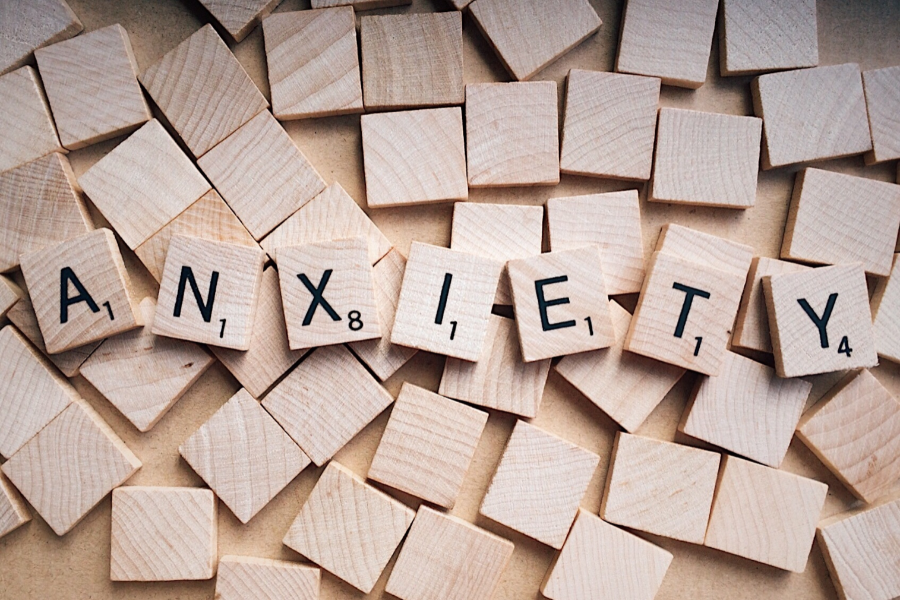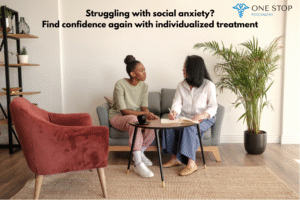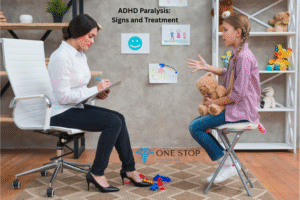Social anxiety affects more people than we think, yet it’s still misunderstood. The main thing to know is that it’s way more than just shyness. When you have it, just walking into a room or chatting with a co-worker can feel like preparing for a big test. You might notice your heart racing, your palms sweating, or you feel like you might be sick. And the scary “what if” thoughts can take over—what if people laugh or think you’re weird?
The good news is that most folks don’t need to suffer in silence. Therapy and often the right medication can make everyday life much, much easier. For those struggling with social anxiety, One Stop Psychiatry clinic offers in-person and telehealth support to help you through anxiety.
What is Anxiety?
Anxiety disorder (social phobia) is a medical condition that causes fear and anxiety when you’re around people in social situations. People with anxiety fear being judged or watched by others. This disorder is treatable with talk therapy and medications such as antidepressants.
Approximately 15 million Americans suffer from anxiety disorders. People of any age can be diagnosed with anxiety.
Symptoms of Anxiety
Many individuals experience social situations that trigger feelings of nervousness, such as job interviews or first dates. However, the symptoms associated with social anxiety are typically intense and beyond one’s control. These symptoms can be experienced in both physical and psychological ways:
- Meeting new people.
- Performing in front of people.
- Taking or making phone calls.
- Using public restrooms.
- Asking for help in a restaurant, store, or other public place.
- Dating.
- Answering a question in front of people.
- Eating in front of people.
- Participating in an interview
Physical Symptoms in Social Settings
Social anxiety doesn’t just affect the mind. It can also trigger physical reactions such as:
- Rapid heartbeat
- Sweating
- Trembling
- Blushing
- Stomach discomfort
Ignoring social anxiety doesn’t make it disappear—it can get worse as time goes on. When this happens, it can open the door to other problems. More types of anxiety, new phobias, and even depression can start to creep in. A sense of loneliness often tags along, making everything feel heavier and harder to face.
Signs you may have Anxiety ( How to recognize them)
Do you suspect that you might be dealing with anxiety? Here are five signs that it could be a problem:
Avoiding Social Gatherings
If you find that social situations trigger worries about being judged or perceived as inadequate by others, you are likely avoiding them. If an invitation to a gathering or public event sends you spiraling into negative thoughts about how you will engage with others or the fear of saying something inappropriate, it suggests that your fear is disproportionate to the reality of the situation.
Replaying Headlines
Every misplaced word feels huge, right? If you leave a gathering, stay in private, and replay every “oops” moment in your mind, your worried reflections can stretch hours or days long. When these mental reruns rob you of sleep and spark the same feelings of shame long after the party has ended, that’s anxiety steering the script.
Trouble Holding Eye Contact
Finding it hard to look someone in the eye can feel normal when anxiety hits. A quick chat in line at the grocery store suddenly seems scary, so you end up focused on your shoes, your phone, or even staring at your fingernails. You want to connect, but your brain hits the brakes, pulling your gaze elsewhere to avoid the rush of anxiety.
Fear of Offending People
If you suffer from anxiety, your desire to avoid being judged may extend to a fear of offending or upsetting others. You might find yourself overly focused on every word you use in an attempt to avoid potentially offending someone and embarrassing yourself. This constant self-restraint and hyper-awareness can be quite draining.
Low Self-Esteem
All the worrying about judgment and criticism can take a toll on your self-confidence. Anxiety can lead you to doubt your abilities and diminish your belief in yourself. These feelings can contribute to increased anxiety and depression.

Management and Treatment
Less than 5% of people affected by social anxiety seek professional help, even though there are effective treatments for the disorder. Pharmacological management and therapeutic interventions can both offer significant advantages.
Anxiety disorder is highly treatable with cognitive behavioral therapy (CBT), Exposure Therapy, and medication such as antidepressants.
cognitive behavioral therapy (CBT)
Cognitive Behavioral Therapy (CBT) is an effective strategy that provides individuals with alternative methods for behavior and responses in different situations, while also aiding in the development of social skills.
Within the framework of CBT, exposure therapy acts as an effective technique where individuals are gradually reintroduced to controlled social scenarios. This approach aims to boost confidence and comfort levels, counteracting the inclination to evade these interactions.
Furthermore, a variety of antidepressants and anti-anxiety medications can effectively reduce the physical and psychological symptoms associated with social anxiety, thereby promoting a greater sense of ease in social environments.
When to Seek Help
If anxiety interferes with your ability to study, work, build relationships, or enjoy life, it may be time to reach out for professional help. With therapy, support, and sometimes medication, anxiety can be effectively managed.
Remember, social anxiety is a common experience, and seeking help is a vital step towards improvement.
At OnestopPsychiatry
Our team of professional psychiatrists and therapists provides compassionate care, professional individualized treatment for social anxiety.
We provide both telehealth services and in-person care at our Florida offices. Whether you prefer the comfort of speaking to a provider from home or face-to-face sessions at one of our clinics, our team is here to help.
Learn more about our Anxiety Treatment in Florida and take the first step toward building confidence and overcoming social anxiety.
Please call our office for more information: (754) 270-6322
Address: 8910 Miramar Pkwy Office 309G, Miramar, FL 33025




